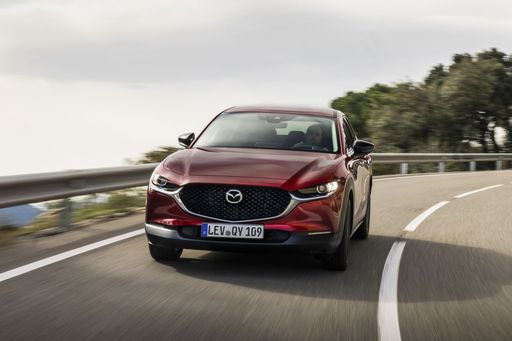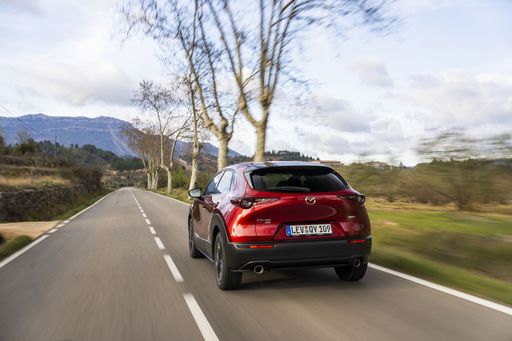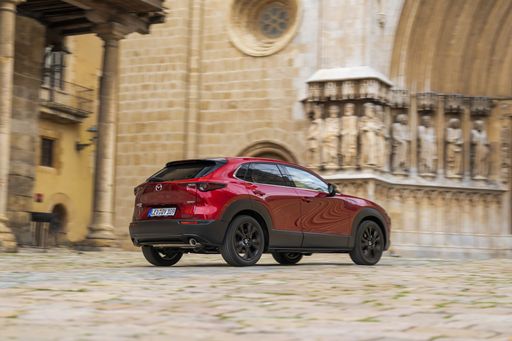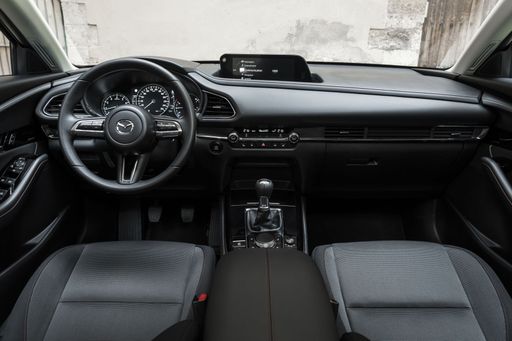Mazda MX-30 vs Toyota Yaris – Which model is better for everyday use?
Two cars, one duel: Mazda MX-30 meets Toyota Yaris.
Which one wins in performance, efficiency and value for money? Find out now!
Costs and Efficiency:
When it comes to price and running costs, the biggest differences usually appear. This is often where you see which car fits your budget better in the long run.
Toyota Yaris has a significantly advantage in terms of price – it starts at 21900 £, while the Mazda MX-30 costs 30800 £. That’s a price difference of around 8991 £.
Engine and Performance:
Power, torque and acceleration are the classic benchmarks for car enthusiasts – and here, some clear differences start to show.
When it comes to engine power, the Toyota Yaris has a distinct edge – offering 280 HP compared to 170 HP. That’s roughly 110 HP more horsepower.
In acceleration from 0 to 100 km/h, the Toyota Yaris is clearly quicker – completing the sprint in 5.50 s, while the Mazda MX-30 takes 9.10 s. That’s about 3.60 s faster.
In terms of top speed, the Toyota Yaris performs noticeable better – reaching 230 km/h, while the Mazda MX-30 tops out at 140 km/h. The difference is around 90 km/h.
Space and Everyday Use:
Beyond pure performance, interior space and usability matter most in daily life. This is where you see which car is more practical and versatile.
Both vehicles offer seating for 5 people.
In curb weight, Toyota Yaris is decisively lighter – 1090 kg compared to 1849 kg. The difference is around 759 kg.
In terms of boot space, the Mazda MX-30 offers a bit more room – 350 L compared to 286 L. That’s a difference of about 64 L.
In maximum load capacity, the Mazda MX-30 performs a bit better – up to 1155 L, which is about 220 L more than the Toyota Yaris.
When it comes to payload, Toyota Yaris noticeable takes the win – 525 kg compared to 402 kg. That’s a difference of about 123 kg.
Who comes out on top?
Overall, the Toyota Yaris shows itself to be shows small but notable strengths and secures the title of DriveDuel Champion.
It convinces with the more balanced overall package and proves to be the more versatile choice for everyday use.

Toyota Yaris
Mazda MX-30
The Mazda MX-30 is a compact crossover that combines unique design with an environmentally conscious approach. Its distinct exterior features a coupe-like silhouette and freestyle doors that offer practicality and style. Inside, the cabin boasts sustainable materials, creating a harmonious blend of modern aesthetics and eco-friendly innovation.
details @ de.mazda-press.com
@ de.mazda-press.com
 @ de.mazda-press.com
@ de.mazda-press.com
 @ de.mazda-press.com
@ de.mazda-press.com
 @ de.mazda-press.com
@ de.mazda-press.com
Toyota Yaris
The Toyota Yaris exudes a charming blend of practicality and style, making it an appealing choice for urban drivers. Its compact design allows for easy manoeuvrability in crowded city streets, while the interior offers a surprisingly spacious and comfortable environment. With a focus on fuel efficiency and reliability, the Yaris remains a popular option for those seeking a balance between performance and economy.
details @ Toyota
@ Toyota
 @ Toyota
@ Toyota

|

|
|
|
|
Costs and Consumption |
|
|---|---|
|
Price
30800 - 37100 £
|
Price
21900 - 46700 £
|
|
Consumption L/100km
-
|
Consumption L/100km
3.8 - 9.5 L
|
|
Consumption kWh/100km
18.30 kWh
|
Consumption kWh/100km
-
|
|
Electric Range
85 km
|
Electric Range
-
|
|
Battery Capacity
-
|
Battery Capacity
-
|
|
co2
22 g/km
|
co2
87 - 215 g/km
|
|
Fuel tank capacity
-
|
Fuel tank capacity
36 - 50 L
|
Dimensions and Body |
|
|---|---|
|
Body Type
SUV
|
Body Type
Hatchback
|
|
Seats
5
|
Seats
4 - 5
|
|
Doors
5
|
Doors
3 - 5
|
|
Curb weight
1849 kg
|
Curb weight
1090 - 1356 kg
|
|
Trunk capacity
332 - 350 L
|
Trunk capacity
141 - 286 L
|
|
Length
4395 mm
|
Length
3940 - 3995 mm
|
|
Width
1848 mm
|
Width
1745 - 1805 mm
|
|
Height
1555 mm
|
Height
1455 - 1500 mm
|
|
Max trunk capacity
1137 - 1155 L
|
Max trunk capacity
935 L
|
|
Payload
402 kg
|
Payload
289 - 525 kg
|
Engine and Performance |
|
|---|---|
|
Engine Type
Plugin Hybrid
|
Engine Type
Full Hybrid, Petrol
|
|
Transmission
Automatic
|
Transmission
Automatic, Manuel
|
|
Transmission Detail
Reduction Gearbox
|
Transmission Detail
CVT, Manual Gearbox, Automatic Gearbox
|
|
Drive Type
Front-Wheel Drive
|
Drive Type
Front-Wheel Drive, All-Wheel Drive
|
|
Power HP
170 HP
|
Power HP
116 - 280 HP
|
|
Acceleration 0-100km/h
9.10 s
|
Acceleration 0-100km/h
5.5 - 9.7 s
|
|
Max Speed
140 km/h
|
Max Speed
175 - 230 km/h
|
|
Torque
-
|
Torque
390 Nm
|
|
Number of Cylinders
-
|
Number of Cylinders
3
|
|
Power kW
125 kW
|
Power kW
85 - 206 kW
|
|
Engine capacity
830 cm3
|
Engine capacity
1490 - 1618 cm3
|
General |
|
|---|---|
|
Model Year
2025
|
Model Year
2024 - 2025
|
|
CO2 Efficiency Class
B
|
CO2 Efficiency Class
B, G
|
|
Brand
Mazda
|
Brand
Toyota
|
What drivetrain options does the Mazda MX-30 have?
Available configurations include Front-Wheel Drive.
The prices and data displayed are estimates based on German list prices and may vary by country. This information is not legally binding.
